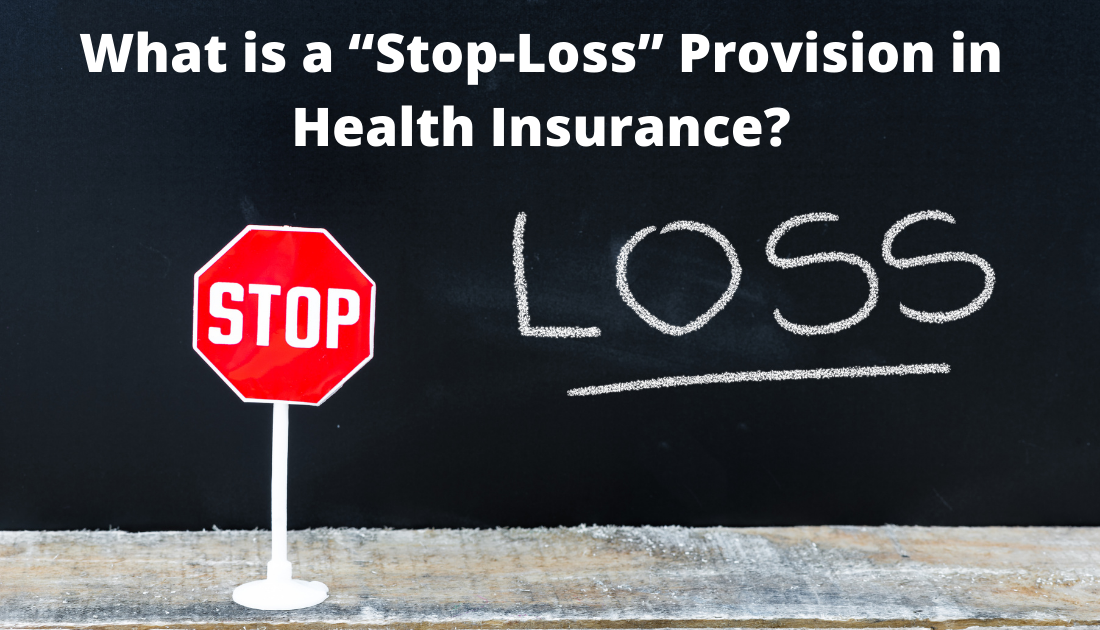What is a “Stop-Loss” Provision in Health Insurance?

Just the Essentials...
- Stop-loss insurance protects an insurer financially when a client files an extremely catastrophic healthcare claim.
- Standard insurers and self-insuring businesses are both eligible for stop-loss provisions.
- Stop-loss provisions make self-insurance options more affordable for businesses by absorbing some of the risks.
- Deductibles can be very high for small businesses, leaving large gaps between out-of-pocket maximums and deductible amounts.
- If you self-insure, you do not have to offer every service required by the Affordable Care Act (ACA) and premiums are tax-deductible.
- A good stop-loss provision can make self-insurance an attractive option for small businesses.
Stop-Loss Insurance: Protection Against the Rising Costs of Healthcare
As the ACA requires most businesses to offer affordable health insurance to employees, the search is on for quality affordable options. The rising costs of healthcare have insurers, employers, and families alike worrying about the thought of beneficiaries, employees, and family members suffering from debilitating illnesses or injuries.
The human cost is enough of a cause for concern. After all, no one wants to see a friend, colleague, or loved one go through something catastrophic. On the other hand, the financial cost can be very overwhelming not only to the family, but to insurers and employers as well. This is where stop-loss provisions can be a major help.
Stop-loss provisions are designed to protect self-insuring employers and health insurance companies from taking major hits from catastrophic claims. When you sign up for health insurance, you’ll have to meet a certain out-of-pocket amount before you’re fully covered. In most cases, this amounts to a few thousand dollars. Once you go over the out-of-pocket amount, everything claimed from that point on must be covered by your insurance company.
A company that self-insures will often add a stop-loss provision so that once their deductible is met, their insurance company will pay the remainder. This is one way that companies can protect themselves from the possibility of facing financial disaster as a result of a major healthcare claim.
Are you searching for health insurance that can meet the needs of you and your family? Enter your zip code into our free finder tool above to begin comparing health insurance plans in your area.
Who Qualifies for Stop-Loss Insurance Provisions?
A company of any size that offers self-insurance can obtain a stop-loss provision to protect them from the risk of financial loss as a result of catastrophic health claims. Companies pay premiums based on the number of employees that they cover and a desired deductible amount. Once the annual deductible is reached, the insurer pays the rest of the claim for the year.
Stop-loss provisions help divide financial risks in a way that makes them manageable for everyone. Insurers can also qualify for stop-loss coverage. Stop-loss coverage for insurance companies works the same way as it would for a self-insuring company.
Stop-Loss Provisions Make Self-Insurance a More Attractive Option
Businesses that take on healthcare coverage to offer employees an affordable option by self-insuring seem to enjoy the lower costs. Paying for basic medical care through self-insuring is far less expensive than bargaining with another company to obtain premium levels that are affordable to everyone.
Of course, there are always risks involved with self-insuring, as health can be a very unpredictable thing. However, stop-loss insurance provisions can help bring the costs – and risks – of high medical bills down to manageable levels.
Can Stop-Loss Provisions Help Small Businesses Avoid High Costs?
Most employers are required to offer affordable health insurance to their employees under the ACA. There are some who opt to self-insure, but others are not willing to take the risks that can come with self-insurance. Stop-loss provisions have made it easier for many smaller businesses to take this option, but they’re only doing so as a way to try and avoid the costs associated with ACA regulations.
Self-insuring allows employers to offer what they want to offer as far as covered health services. Employees are able to get access to basic healthcare services, and the company avoids high premiums. It seems like a win-win for all involved, but it can turn nasty quickly if a self-insuring company does not have stop-loss provisions in place. One catastrophic illness or injury can mean financial ruin for a small self-insuring business that does not have a stop-loss provision.
Is Self-Insuring the Best Solution?
With a proper plan, self-insurance can be the perfect solution for many companies. In order to make it work, though, you’ll need to build up a great deal of money to be able to pay the deductible amount while handling normal coverage needs.
Not all small companies will be able to use stop-loss provisions due to the high cost of premiums and deductibles. It is simply a gamble that many small businesses are not willing to take. For companies who can manage the cost, it is a solution worth investing in.
Stop-loss provisions are protective barriers that help businesses keep costs under control while getting medical bills paid. You can never predict when someone will come down with a major illness or suffer a catastrophic injury. Self-insurance and stop-loss provisions are one way employers can keep health insurance affordable without assuming all of the risks.
If you’re going without health insurance because of the cost, let us help you find an affordable plan that works for you. Enter your zip code to find health insurance plans in your area today.
Key Resources:
1: “What is a Stop-Loss Provision?”
2: “Strategies for Managing Health Care Costs”
3: “Self-Insurance Could Be Small Business Option”
4: “Some Small Businesses Choose to Self-Insure.”
5: “What Health Insurance is Considered Affordable Under Obamacare?”
